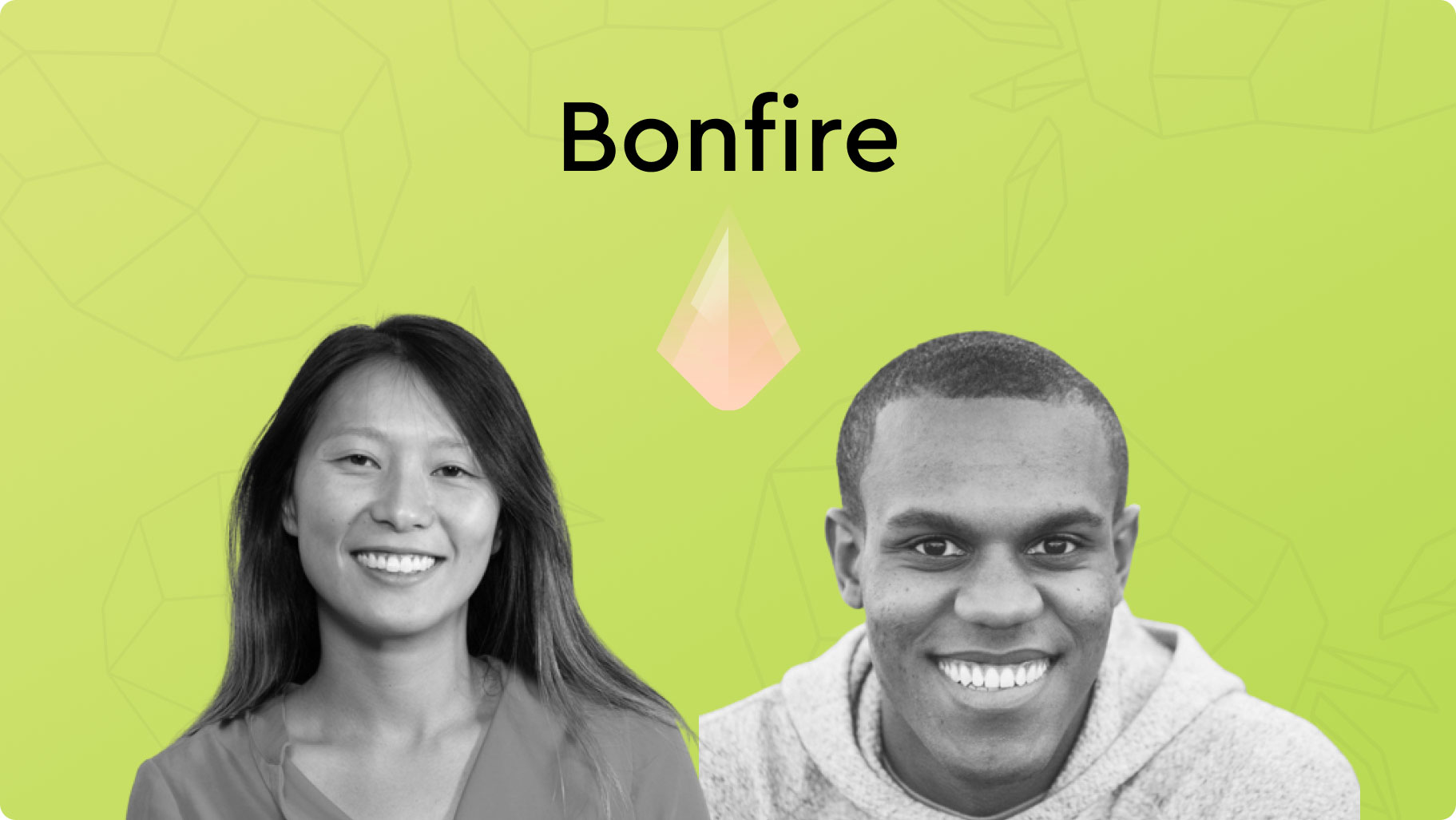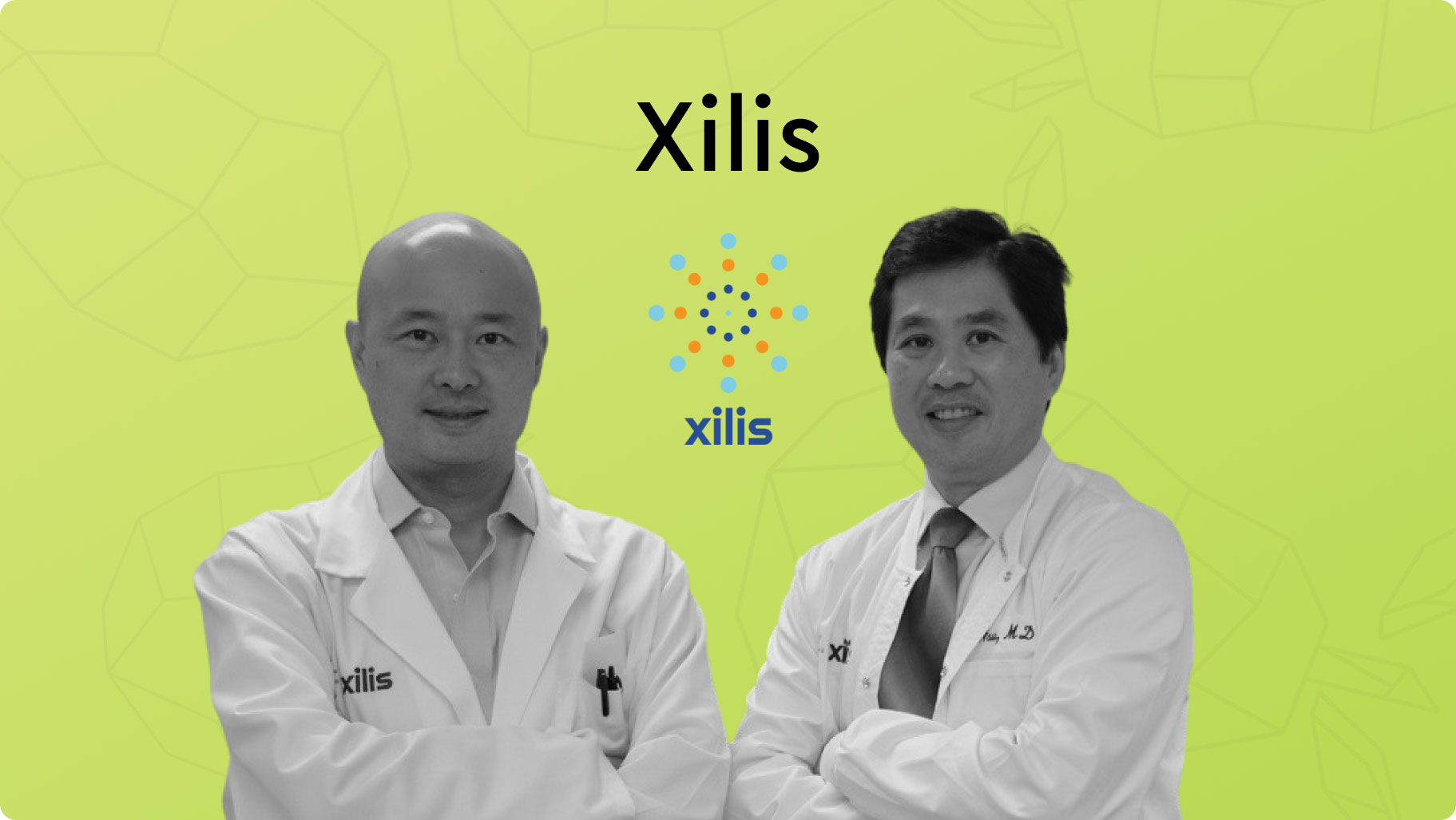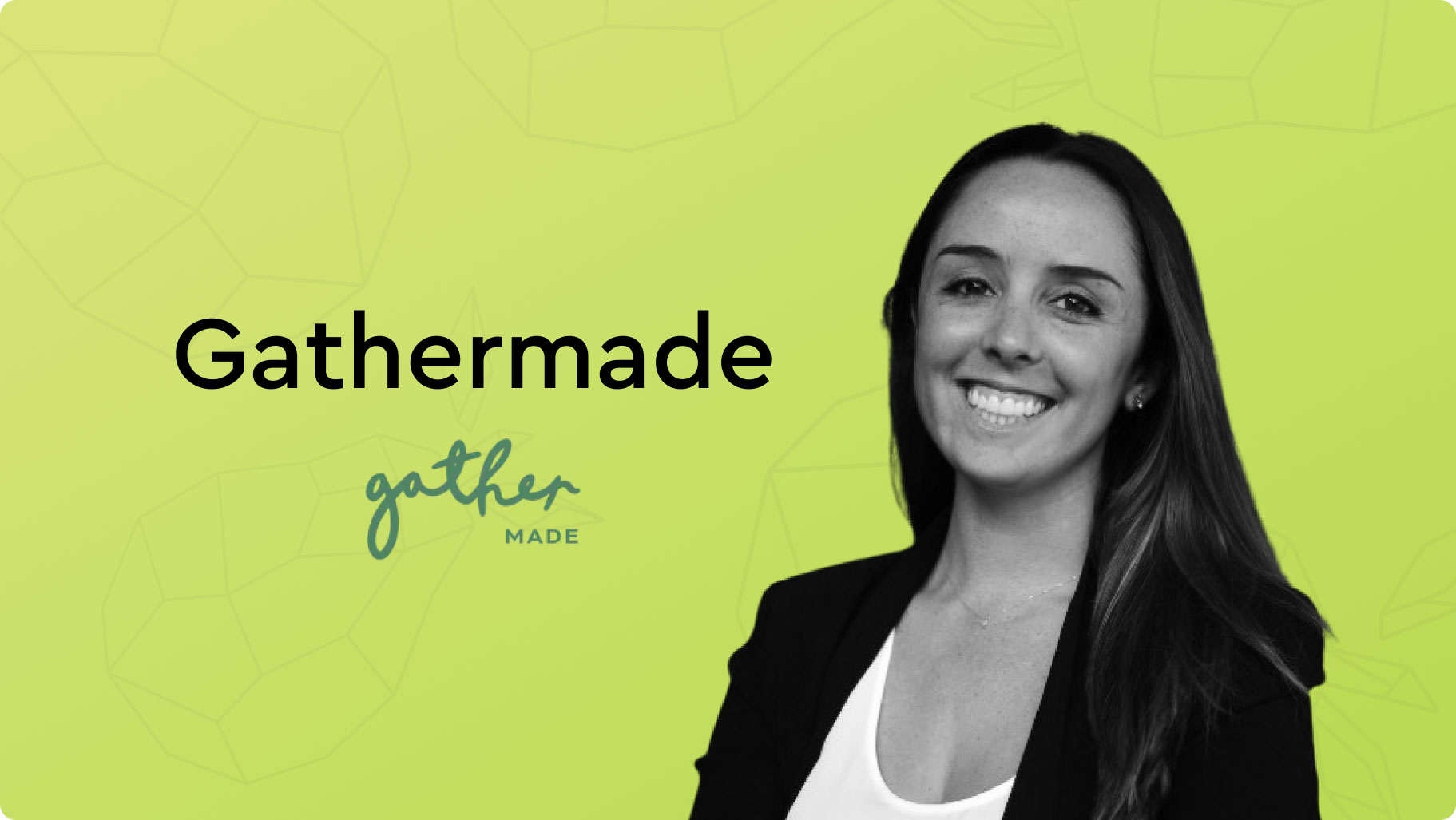TLDR:
- 🎫 Two former classmates in Duke’s Computer Science Department, Melissa Zhang and Matt Alston left their jobs at Coinbase and Uber, respectively, and decided to start a company aimed initially at helping people discover things to do in a new city.
- 🤔 After joining Pear’s Summer 2021 Accelerator cohort, Melissa and Matt received feedback from Pear’s team and community of mentors that helped them realize that their original business plan wasn’t likely to set them up for long-term success — so they pivoted!
- 🏦 Ultimately, they landed on a plan to use Web3 technology to help creators become equity holders in their own brands.
- 💰 After completing the Accelerator, they landed 70+ investor intros, and with some guidance from Ajay, landed a successful Seed fundraise of $5.2M, led by NEA.
Step 1: Forming the founding team
In 2020, Melissa Zhang left her job as a software engineer at Coinbase to start a new company with her former Computer Science classmate at Duke, Matt Alston. Matt brought extensive experience in consumer apps and product management, having previously worked as a PM at Uber, while Melissa brought an expertise in full-stack software development and an in-depth knowledge of the burgeoning Web3 industry.
Melissa was already connected to Pear through our builder community, and she and Matt came to us with an idea to start a consumer-focused tech company that, at the time, they were calling Rally. While Pear’s team had some open questions about the initial product concept, they also knew Melissa and Matt were still in the pre-launch / ideation stage and there was plenty of time to help them evolve their product vision as they dug into potential product-market fit. More importantly, Pear’s team felt the founding team was top-notch, so we invited them to participate in our Summer 2021 Accelerator cohort.
Step 2: Testing and pivoting
Melissa and Matt’s initial idea centered around creating a consumer product that would help people discover what to do in a city on any given day. The idea stemmed from their own experiences as transplants in San Francisco, where they had moved shortly after graduating from college, and had initially struggled to understand the full extent of what the city had to offer.
As an early step to validate their early product vision, Pear connected the Bonfire team with founders and operators who had worked on similar problems. By connecting with another contact at a well-funded social company in the same space, Melissa and Matt learned that they had actually tried something similar, but struggled to get it off the ground. From the feedback they received in those conversations, and from feedback they were getting from the Pear team directly, they realized they were facing three big challenges to their initial concept:
- Many people had tried and failed to get a similar idea off the ground
- The product had limited long-term potential
- There is an inherent retention problem
“We realized that the idea was too broad and limited,” said Co-Founder Matt.
The Bonfire team decided to shift away from this initial consumer-focused idea and went back to the drawing board — literally. Pear VC Partner, Ajay, started meeting with the Bonfire team on a weekly basis to whiteboard new ideas. “The team at Bonfire was extremely sharp and talented, and we knew they were the right group of founders, we just had to help them find the perfect problem to focus on,” said Ajay.
The team then honed in on a second idea, focused on group meetups and community management. Again, the Pear team helped Melissa and Matt do extensive customer development around this idea, and they even launched a minimum viable product (MVP) before ultimately deciding that monetization would be tricky and there likely wasn’t enough demand in the market to substantiate moving forward with this second idea.
So, they went back to the drawing board for the third time and decided to focus on how to utilize Web3 technology to support real world use cases. This was a big breakthrough moment for the team, especially since Melissa was particularly well positioned to start something in this space, given her history at Coinbase. “The Web3 space is still so new, and there is a ton of opportunity to build in this space,” says Pear Partner Ajay, who leads the firm’s Web3 investments.
Once they circled around the right problem space, the ideas just started flowing and the team knew they were onto something. “I didn’t realize it would take three months and three tries to land on the perfect idea,” said Matt.
Step 3: Working towards product-market fit
Once they decided to focus on Web3, the team was able to ideate quickly and find early interest in what would eventually become Bonfire.
Melissa and Matt identified that the Creator 1.0 space, like content creators on ad-based platforms like YouTube, create a ton of value for platforms, but the creators only receive a fraction of that monetary value in return. While the Creator 2.0 space, through monetization platforms like Patreon, allows creators to receive a slightly bigger slice of the pie, there is still a lot of room for improvement. The team recognized that none of these platforms give creators true ownership of the brands and communities they work so hard to create. But thanks to Web3, this is now possible, really for the first time.
The team got to work on a product roadmap. With Ajay’s help, they firmed up an idea to focus on utilizing NFTs and social tokens to allow creators to own their content, their brand, and their community. They created a product roadmap of tools that make it easy for any creator to build and manage their own token community. This included creator homepages, tools that monetize and reward engagement, and templates for creating value for token holders.
Step 4: Building out the big idea
As they started building out their product strategy, the team knew the market size for an idea like this is enormous, with millions of creators likely interested in a way to get a larger ownership stake in the communities they’re cultivating. However, they also wanted to be sure to align their business’s incentives and monetization strategy with those of the creators to set up a win-win situation.
With Ajay’s help, they aligned on a business idea to create this mutually beneficial dynamic. A creator could mint a token and drop it to early supporters, monetize that token through NFTs like memberships, event tickets, and digital goods, and they could offer other perks and benefits for token holders. And, on their end, Bonfire would be earning a 2.5% fee on transactions unlocked through their technology, ensuring that their monetization ensured both sides would have compatible incentives. Some quick math showed the potential of this strategy: if 2.5M creators created $100K each in volume, that would generate $6.25B for Bonfire, meaning this idea had a huge market potential.
Step 5: Preparing for demo day and fundraising
Confident on where they’d landed through all their research and iterations of their business plan, Matt and Melissa turned their attention to preparing to pitch their newly-rebranded company, Bonfire, to potential investors at the Pear Accelerator’s Demo Day. Ajay helped the team perfect their messaging and work through over 20 versions of their deck in preparation for the big day. They ultimately presented to a room of 700+ investors during Pear’s virtual demo day.
Their mission to use Web3 to empower the next generation of creative communities to achieve economic independence and prosperity really resonated with investors. After a successful demo day pitch, they landed 70+ investor intros. Like many new entrepreneurs, Melissa and Matt knew there were nuances of fundraising and negotiating they needed help working through, so Ajay advised them every step of the way. The team ultimately had a successful seed fundraise of $5.2M, led by NEA.
The Pear team is thrilled that Melissa and Matt were able to land on the right idea through the Pear Accelerator, and we are so excited to see their continued growth journey.


